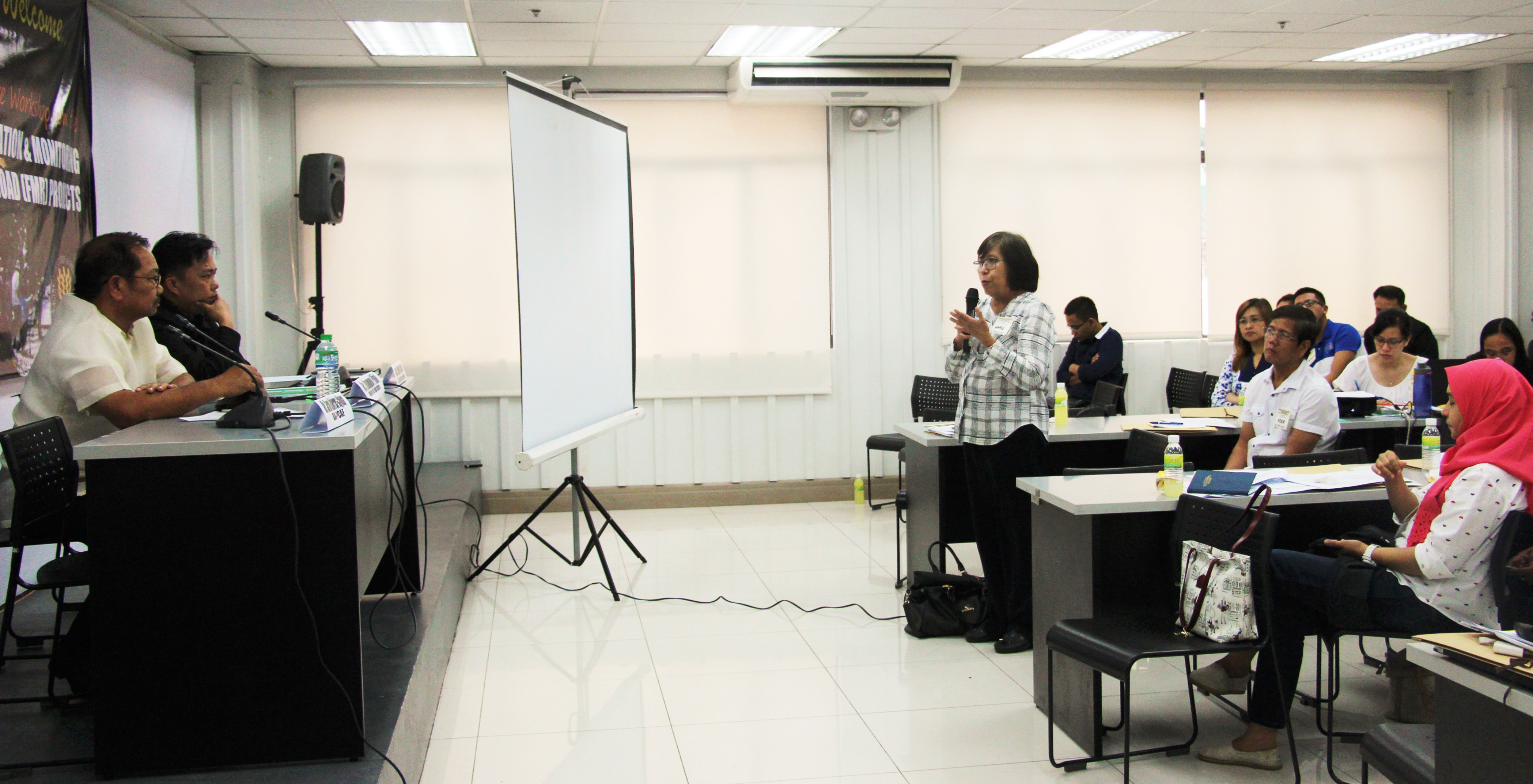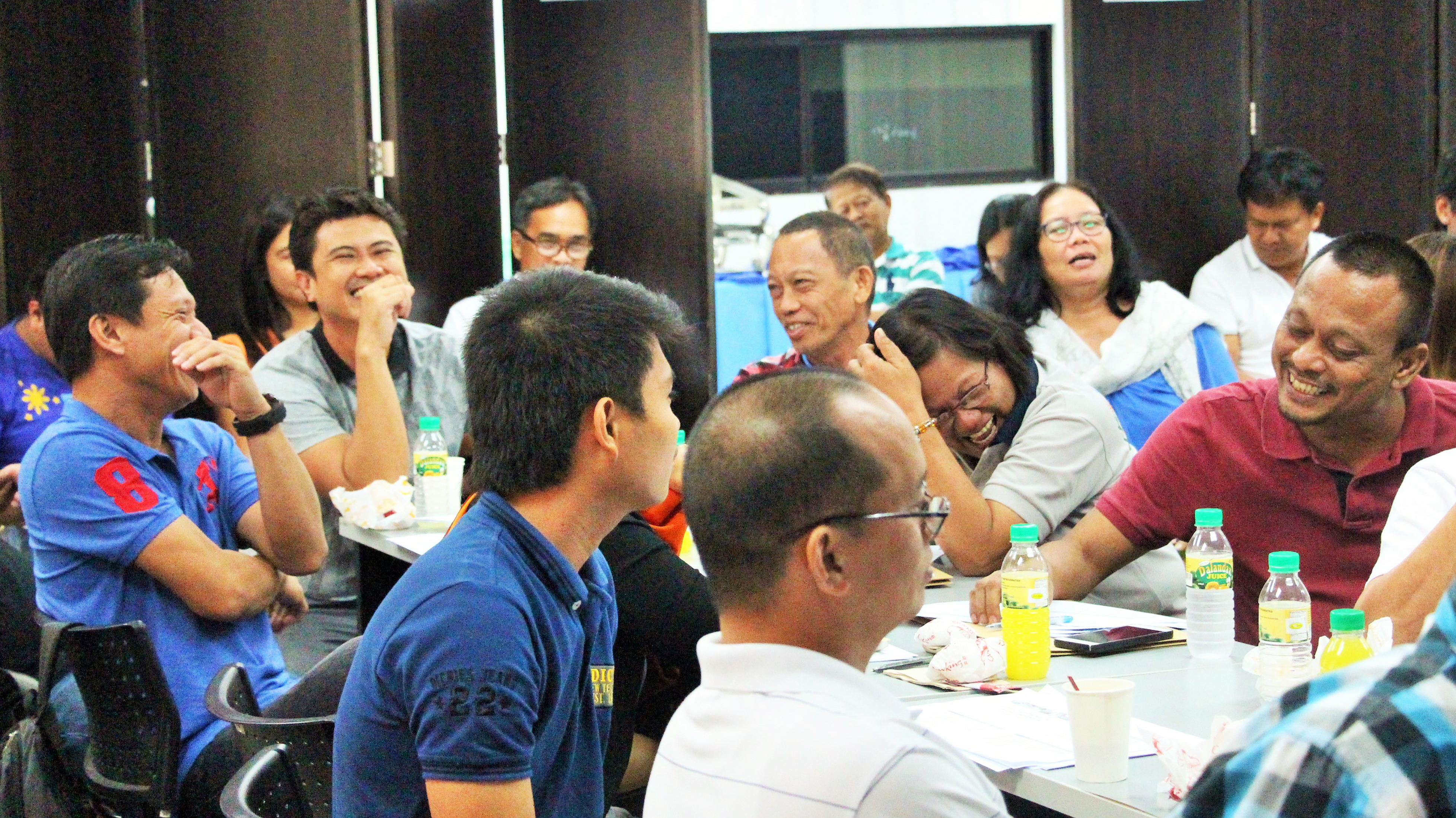
A national consultative workshop was conducted on July 19 to 20, 2017 to harmonize all the guidelines on the planning, implementation and monitoring of the Farm-to-Market Road (FMR) program.
The two-day consultative workshop was a result of a Resolution passed by the Philippine Council for Agriculture and Fisheries (PCAF)- Agriculture and Fishery Mechanization Committee (AFMeC), in coordination with the Department of Agriculture (DA)- Farm-to-Market Road Development Program (FMRDP) after concerns were raised that the implementations of FMR projects were handled by various players.
The said activity aimed to ensure the proper identification, validation, prioritization and effective monitoring on the implementation of FMRs.
Agriculture Secretary Emmanuel “Manny” Piñol and FMRDP Chief Asec. Roldan Gorgonio led the workshop and gave clearer views on some of the issues and concerns about the FMR program.
FMRDP’s Henry Omaña provided a national situationer of the FMR program and the proposal of its implementation’s transfer.
According to Sec. Piñol, FMR projects are “not priority” of the DPWH. He also said that when DA endorses FMR projects to DPWH, the latter pulls 3% of the total amount of the project as administration fee. As an initial move, the PhP1 billion Sugar Regulatory Administration (SRA) FMR fund was already transferred to DA.
“The matrix used for monitoring can also be harmonized. We have prepared the matrix and forwarded it to the DPWH for comments. The FMRDP is reviewing the 2017 MOA to make sure that the DA will have the means to determine if an FMR project has been fully implemented,” said Asec. Gorgonio.
The Secretary also said that he has discussed with Sen. Loren Legarda the problem regarding the number of agencies implementing FMR Projects.
Currently, there are 14 government agencies implementing the FMR Projects. These include the DA, DPWH, Department of Interior and Local Government, Office of the Presidential Advisor on the peace Process, Department of Agrarian Reform, Bureau of Fisheries and Aquatic Resources, Department of Social Welfare and Development, Department of Environment and Natural Resources, SRA, Philippine Coconut Authority, Department of Tourism, Humanitarian Development Action Plan-DPWH, Davao Integrated Development Program and Local Government Units (LGUs).
“If we do not consolidate these programs into one national FMR Network Plan, we will not be able to complete the FMR projects needed to connect all agriculture production areas to the market places,” said Sec. Piñol.
The harmonization of the schemes of different agencies on the planning, implementation and monitoring of FMR projects is a priority step of the DA in support of its Food Security Program.
“(This) activity provides us a good platform to exchange ideas, thus reaching an appropriate conclusion for defining (innovative) perspective and our role in the delivery of services based on our mandates,” said PCAF Exec. Dir. Sarah Gutierrez-Cayona.

At present, the validation and prioritization of FMRs are undertaken by the DA-Regional Field Offices through its Regional Agricultural Engineering Division (RAED), in coordination and consultation with the LGUs, which implement the projects.
The DA-National FMR Secretariat also handles the national consolidation of prioritized FMR projects and subsequent endorsement to the DPWH for bidding and constructions, while the DA-Philippine Rural Development Project implements similar projects funded by the World Bank.
In addition to this, PCAF is mandated by the DA to monitor projects with the participation of its private sectors partners and is concurrently validating the accomplishments of the FMR Program.
Aside from defining the loops, the workshop also aimed to discuss and define the role of RAED in the procurement, implementation and construction of FMRs, which is conducted by the DPWH.
The DA also revealed that it is strengthening RAED in order to facilitate all FMR projects implementation, as well as the assessment, identification and distribution of post-harvest facilities, which the DA works to establish in every region.
Issues and concerns like the plan to update the Philippine Agricultural Engineering Standards (PAES) on FMR, and formulation of capability training program and proposal on FMR planning and implementation for concerned technical staff of the DA, LGUs and the academe were also discussed during the activity.
The participants also identified common grounds on how to improve the existing PAES FMR policies.
During the plenary workshop, the group focused on the creation of an Executive Committee and Technical Working Group on FMR based on the report of FMRDP’s Executive Assistant Allan Hassan, which will be composed of resource persons from lead participating agencies of the government.
Also, according to PCAF- Policy Development and Coordination Division Assistant Division Chief Engr. Francia Macalintal, one of the expected outputs of the consultation is FMR Network Plan. She mentioned that PCAF has funded a policy study with Don Mariano Marcos Memorial State University regarding the preparation of FMR Network.
It was also suggested during the workshop that the approved FMR network plan will be updated regularly to prioritize major rice, corn and high value commercial crops producing provinces.
The creation of an integrated action plan on the preparation of FMR network plan and maps at the provincial, municipal and city levels was also discussed.
Under the 2017 General Appropriations Act (GAA), PhP6 billion is allocated as part of the DA budget for 2018 for the implementation of FMR projects, which will be done under the DPWH in accordance with the approved network plan. The GAA also mandated the DA to ensure that FMRs to be implemented will lead to principal or secondary roads in the key production areas all over the country and are geo-tagged.
The workshop served as a channel to approximately 100 participants from PCAF, RAED, Department of Agrarian Reform, LGUs, League of Provinces, DPWH, Department of Trade and Industry and industry-related private sectors. -JC/AJ











